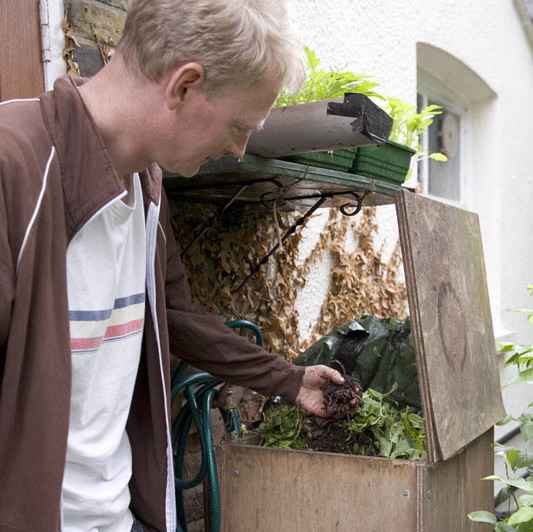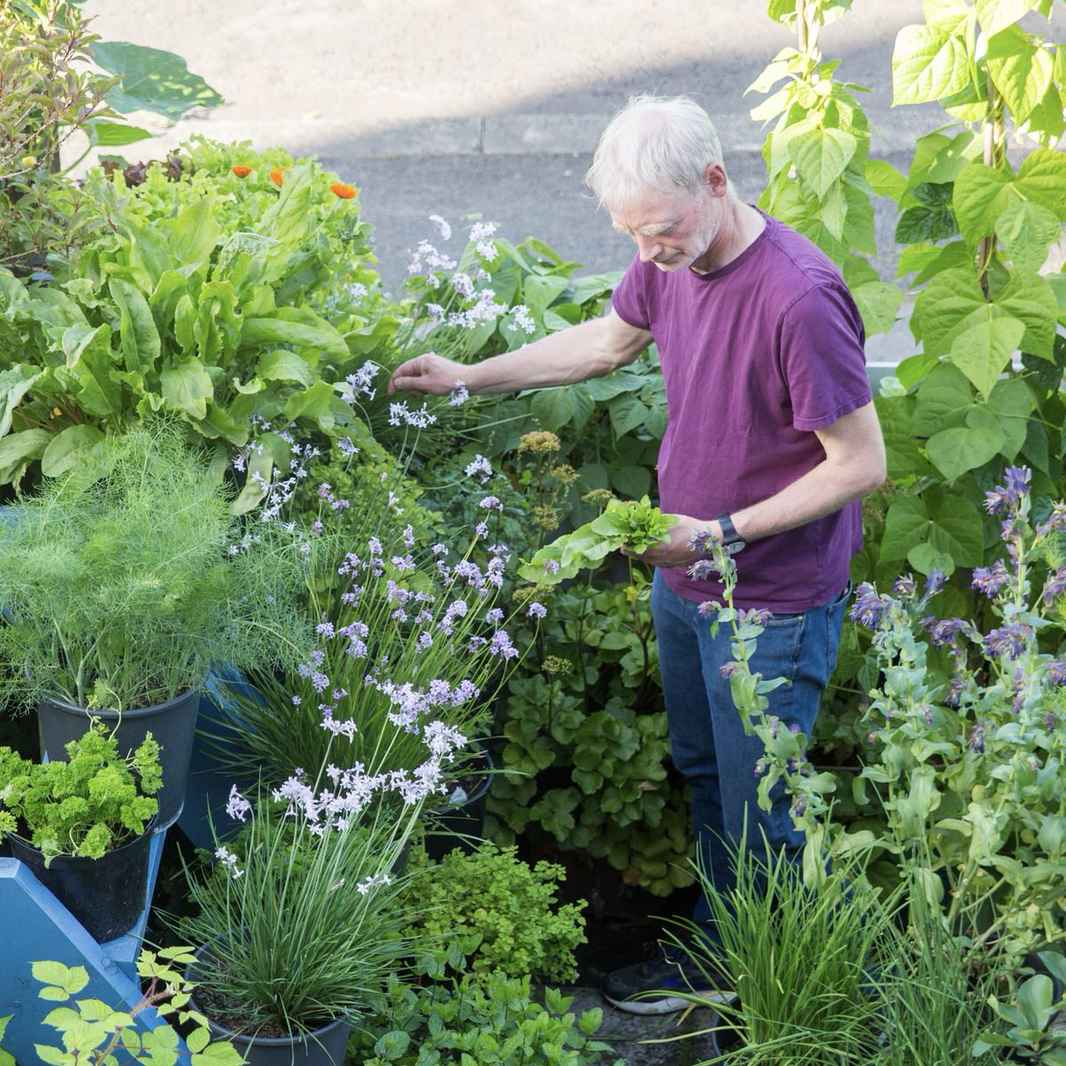[Online Course]
Small space worm composting: How to convert kitchen scraps into top quality compost.
No space for a compost heap? Wormeries / worm bins are the ideal solution. This course will enable you to set up and run a thriving worm bin - and provide you with support for a full year to help ensure your success.
Cost: £75 or 3 monthly payments of £25
Wormeries are ideal for balconies, patios, rooftops and yards: they are small, don't smell and enable you to:
- Make the BEST organic feed for container gardening. It really is! Good quality worm compost is full of nutrients AND teeming with more beneficial soil life than conventional compost. It also contains complex compounds that plants love!
- Recycle your kitchen waste AND save money: convert all your veg & fruit peelings, coffee grounds, tea leaves (and even small amounts of cooked food) into free food for your plants.
- Reduce Carbon Emissions. Food waste sent to land fill releases large volumes of methane, a potent greenhouse gas. Worm composting can reduce methane emissions by 95%.
What you'll learn...

How to choose the right wormery
It's often hard to know which model or size to choose - and which design features to look out for - and which to avoid.
.

How to set up, maintain & harvest it
Step by step instructions on how to set up and feed your bin, keep it healthy, and then harvest the worm compost / vermicast.
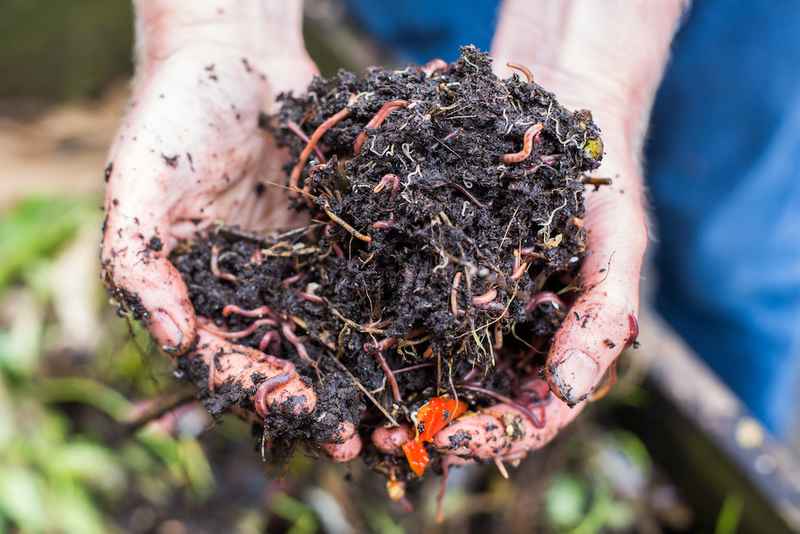
Learn more about what worms need
By understanding what worms need, you'll be able to take better care of them and create conditions for them to thrive.
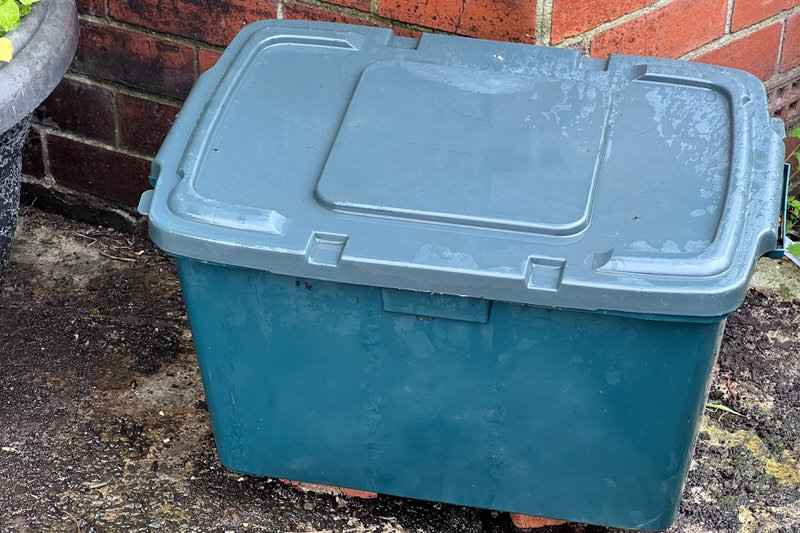
Money Saving tips
Learn how to make a simple but effective wormery at low cost. And the ingredients you can find for free to boost the speed and productivity of your worm bin.

How to make the BEST compost
Not all worm compost is equal. Discover what you can feed worms to significantly improve the quality of worm compost for your plants.
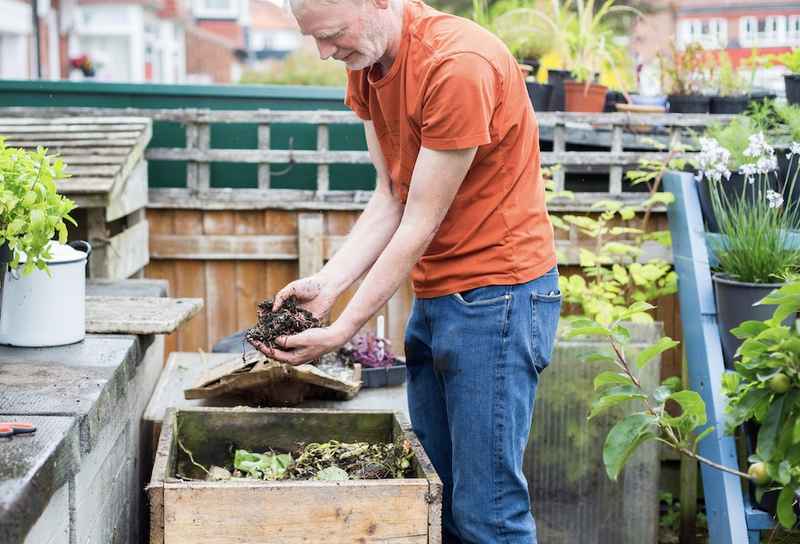
How to Troubleshoot
Learn about the most common things that can go wrong, and how to avoid them and put them right.
Many people have difficult or stressful experiences in running worm bins because: -
- The worms die or leave.
- The bin becomes horribly smelly (a healthy bin will NOT smell bad!).
- The contents get soggy and wet, with worms drowning in the worst instances.
- The worm compost is just not great quality.
I will help you avoid all the above - and run a happy, healthy wormery that makes fantastic quality compost for your plants.
How the Course Works
I've designed the course to give you all the information you need to start and run a wormery PLUS ongoing support for a whole year to help you improve your setup, troubleshoot or ask any questions.
The course includes:-
- A live lesson in a small group (Max 8 people) to help guide your first steps in worm farming (or troubleshoot an existing wormery).
- Help, support and Q&A Meetings live on Zoom for a full year. See course dates. Join as many as you like - or submit questions in advance if you can't join live and I'll record an answer for you.
- Over 2 hours of video lessons to walk you through exactly how, step by step, to make, set up, feed and harvest a wormery - and how to use worm compost effectively in the container garden.
- Fact sheets summarising key information.
- Ask Mark, your teacher, questions through the course website - anytime.
- A private Online Forum for the course where you can meet and talk to other participants.
Course Dates - Live Lessons for 2024
An Introductory small group live lesson - to summarise the most important information you need to know, signpost you to the key resources in the course, and help you plan your next steps.
Choose ONE of the following sessions: Tuesday 2nd July 7pm BST / 1pm CT, Saturday 6 July 3.45pm BST / 9.45 am CT, Tuesday 16 July 7pm BST / 1pm CT
Five Worm Help, Support & Q&A Meetings through the year
Share your progress, get support, and ask your questions (if you can't join live, email your question and I'll record the answer).
- Tuesday 20 August 2024, 7pm BST / 1pm CT
- Tuesday 10 September 2024, 7pm BST / 1pm CT
- Wednesday 6 November 2024, 7pm BST / 1pm CT
- Monday 10 March 2025, 7pm / 1pm CT
- Monday 19 May 2025, 7pm / 1pm CT
Why is worm compost so good for container gardening?
Worm compost is often considered the ultimate plant food, and is known as 'black gold', because:-
- It's rich in all the major nutrients plants needs as well as many important trace elements and other growth promoting compounds.
- It's teeming with microbial life that enhances plant vitality and increases resistance to pests and disease.
- It's a low cost, environmentally friendly and organic way to feed plants - and to stop food scraps going to landfill.
When growing in containers we want to mimic conditions in the ground as much as possible. Worm compost helps us achieve this by substantially increasing the activity of beneficial microbes - that are found naturally in the soil - in our pots.
The benefits of worm compost for growing include:
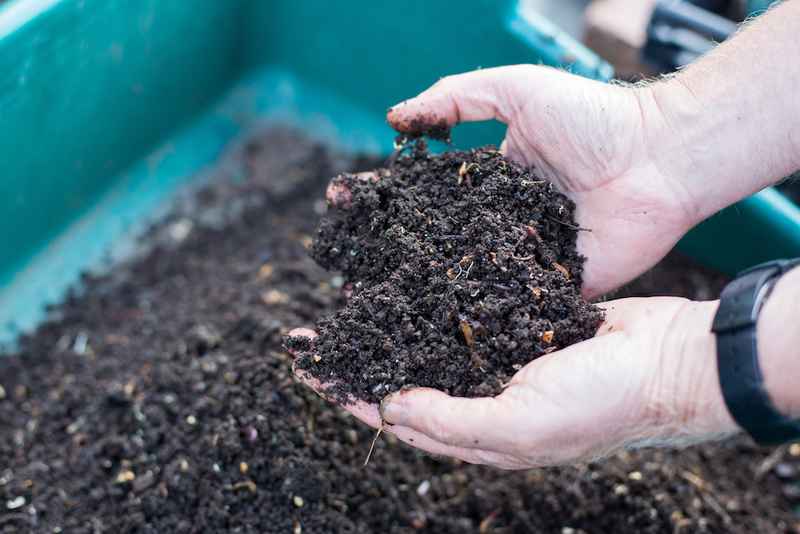
Stronger growth, better harvests
Your plants will look healthier - and they will grow stronger and yield better.
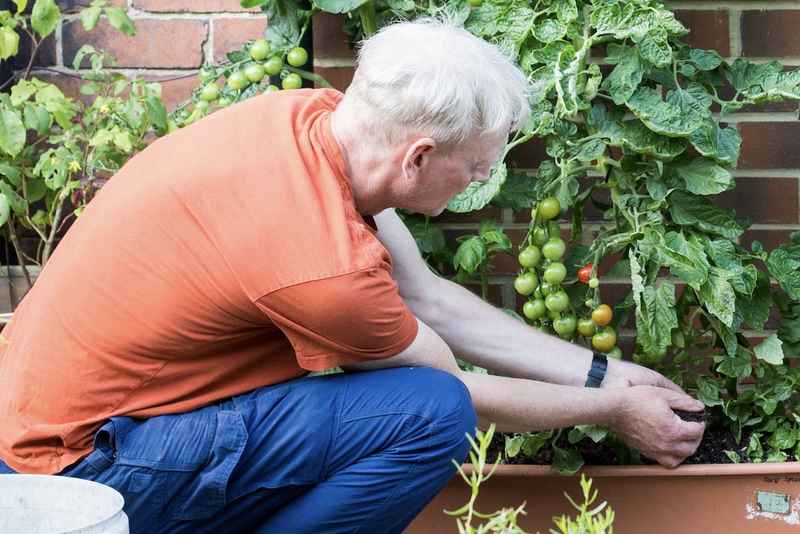
Increased pest & disease resistence
Tests show that worm compost can significantly increase plants resistance to pests and diseases.

Better germination & reduced 'transplant shock'.
It can also help improve germination, and reduce the shock plants experience when moved from one container to another.
About Mark Ridsdill Smith, your tutor
I first discovered wormeries when growing on a balcony in London 14 years ago. After making lots of mistakes (when, I confess, I was responsible for the demise of two worm colonies), worm compost started to transform my container gardening. Everything grew stronger and healthier. It was also rewarding to recycle our food scraps rather than throwing them in a bin.
Since then I've experimented with a variety of different wormeries in my concrete front yard (pictured - all powered by worm compost!). I currently have five! They are the main form of fertility in my container garden.
Over the years, I've met lots of people who struggle to run a wormery, and seen a lot of unhealthy wormeries that don't produce good compost. I've also seen misleading information and instructions about wormeries online that can compound the problem.
I created this course to show that, with a bit of knowledge and practise, it's not difficult to create a happy, productive wormery. It's a bit like riding a bike - very easy when you get the hand of it. I'd love to show you how.
[Online Course]
Small space worm composting: How to convert kitchen scraps into top quality compost.
Cost: £75 or 3 monthly payments of £25
